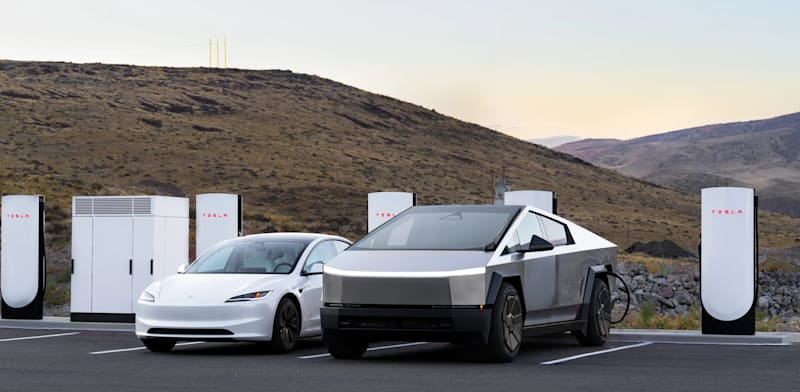In the wake of China and the US, the vehicle market in Israel is also gearing up for a great leap forward in rapid charging. Within a year or two, it will be possible to charge electric vehicles three to four times faster than is usual today. A new generation of charging stations will support a theoretical charging rate of one megawatt or more, which compares with 250 kilowatts for most public rapid charging stations today.
Such a charging station will be able to charge large batteries almost fully within an average of five minutes, for vehicles adapted to such charging speeds. This is about the same time as it takes to fill the tank of a gasoline fueled vehicle at a typical fuel station. Alternatively, if a full charge is not required, it will be possible to extend the range of an electric car by hundreds of kilometers in less than two minutes. Such a charger can also share the ultra-rapid charging rate between several vehicles attached to it at the same time, overcoming today’s problem of a significant decline in charging speed when several vehicles are attached to the same station.
This year, tens of thousands of 1 megawatt chargers started to be rolled out in China, supported by leading vehicle manufacturers such as BYD and Huawei, some of which have launched production of vehicles that can take advantage of them. The main battery makers, such as CATL, have started selling batteries that support these charging rates. These vehicles, from BYD and other manufacturers, are meant to arrive in Israel next year.
The cost of buying and installing these chargers is still high, amounting to tens of thousands of dollars per unit. This is because they incorporate special technology, such as water cooling of the station and connecting cables, and an internal energy storage unit that can compensate for problems in the power conduction network.
The heavy vehicle market
Until the use of vehicles that support this charging technology becomes widespread, its main advantage is for heavy and logistics vehicles. Such vehicles have large batteries that take a long time to charge, which represents a substantial barrier to the penetration of electric vehicles in this segment.
“Globes” has learned that at least one large charging provider in Israel, Gnrgy, is already engaged in a pilot program for ultra-rapid chargers at the logistics center of a leading haulage company. In the trial, 720 kilowatt charging stations are being used, which theoretically can support the ultra-rapid charging of two trucks or commercial vehicles simultaneously. Chargers like these are expected to be launched commercially in Israel in the final quarter of this year, although they will initially be limited to 450 kilowatts because of infrastructure consideration. Other vehicle importers are examining the possibility of installing ultra-rapid chargers at their headquarters and main depots, subject to the grid infrastructure.
RELATED ARTICLES
“Globes” has also learned that Tesla Israel has started examining the technical feasibility of deploying Tesla’s new generation of Supercharger, the V4, which can theoretically charge a vehicle at rates of up to 500 kilowatts, almost double the maximum rate of existing charging stations. They are designed to support charging at up to 1.2 megawatts in the future. Tesla already operates a network of these chargers in the US, supplying actual charging rates of about 325 kilowatts, and it deployed the first stations of this type in Europe last year.
The Israel Public Utility Authority for Electricity said, “A number of Israeli companies are at present examining these kinds of technologies, but so far there have been no specific requests to connect them.”
Published by Globes, Israel business news – en.globes.co.il – on July 17, 2025.
© Copyright of Globes Publisher Itonut (1983) Ltd., 2025.







